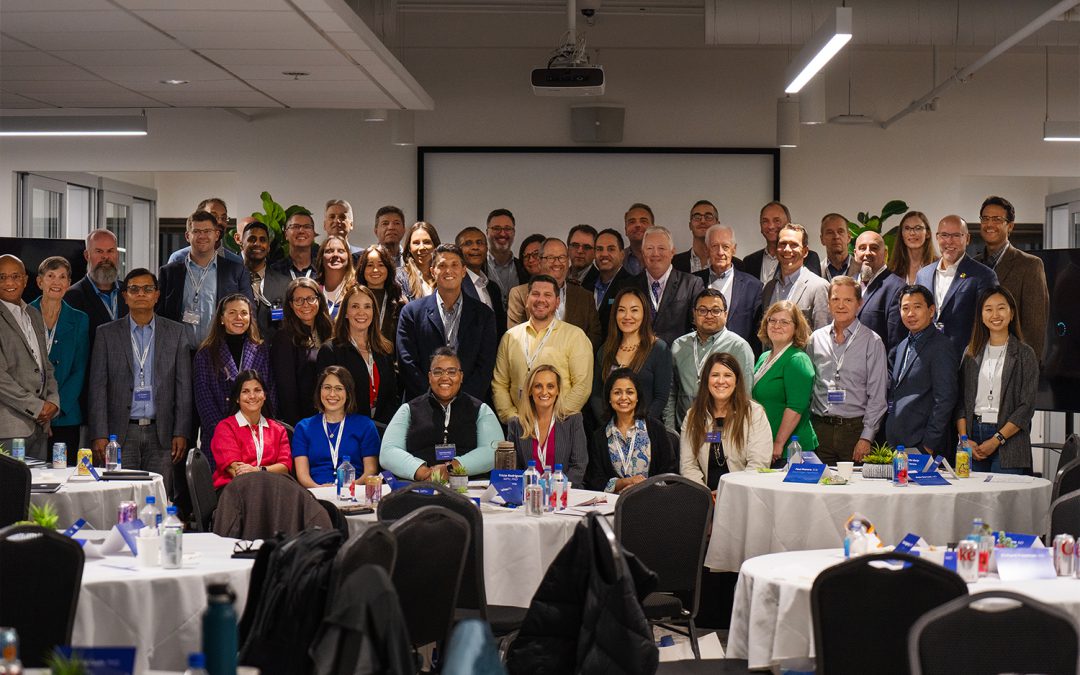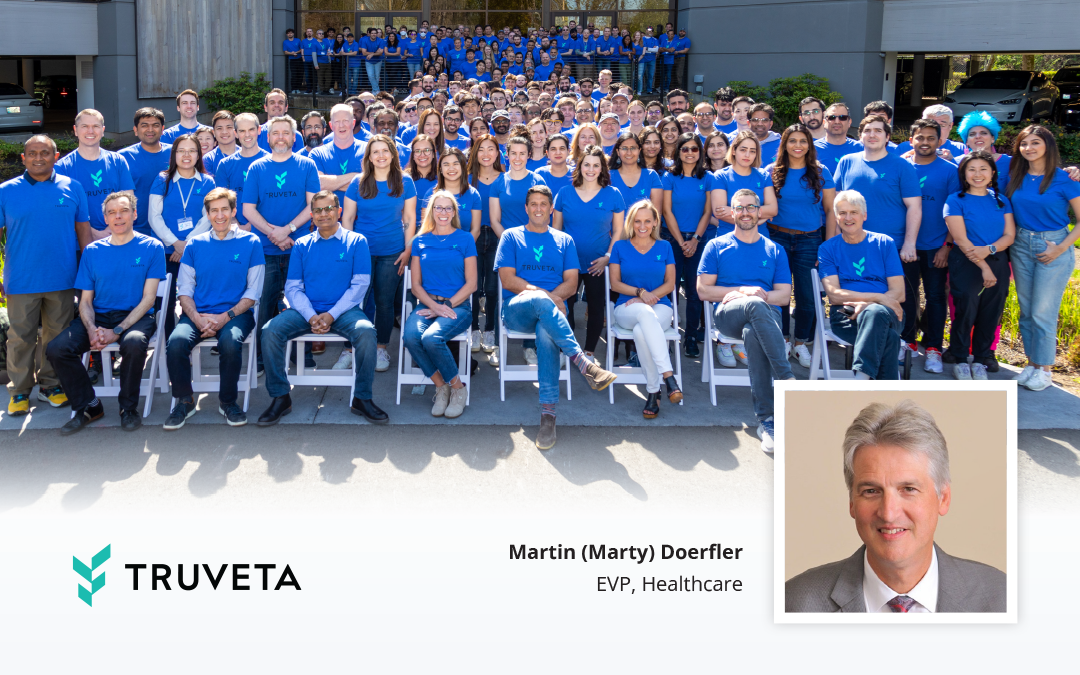Next in our Meet the MDs series, we spoke with Dr. Ryan Lee, a physician trained in surgery and a Director of Clinical Informatics at Truveta. Dr. Lee has been instrumental in helping to normalize the Truveta data so it can be studied by researchers, help to evaluate data quality metrics, and draw product boundaries to prioritize features.
How did you find Truveta?
I discovered Truveta through Dr. Michael Wang, another Director of Clinical Informatics. We used to work at the same hospital, where I remember always talking about technology. I even remember saying, “Wouldn’t it be great if we both worked at a tech company someday?”
How would you describe your role here?
Today, research requires a team of people with extensive knowledge of medicine, healthcare data, hospital-specific practices, and technical know-how. As a Clinical Informaticist at Truveta, my goal is to make research more accessible.
One way we do this is by taking complex clinical concepts and turning them into separate queries for data that researchers can use and build upon to get the right data for research. Over the past year, we’ve made huge strides in how the data is normalized and made available for research, making the process quicker and easier for the researchers.
Tell me a little bit about your background. How did you become a doctor?
I never imagined I would work in tech. But during residency, there were just so many repetitive tasks that I felt could be solved. Administrative operations soon became my passion — making life easier for doctors to have more information at their fingertips. From there, I taught myself to code, how to model and normalize healthcare data, and how to access it to perform tasks and analyze our workflows. I had a unique interest in the data and it was clear that I would dedicate myself to operations and informatics.

Dr. Ryan Lee with two colleagues.
Where did you study and work?
I went to Brown University for undergrad, went to University of California San Francisco (UCSF) for medical school, and then I did my general surgery residency training at UCSF East Bay. Alameda County Medical Center was the primary hospital where our residency took place, but I also worked at UCSF, Oakland Children’s Hospital, and various Kaiser hospitals in the Bay Area.
I enjoy working in safety net hospitals, serving the community. It’s a privilege to see and work with patients who have nowhere else to turn. Equally, I love being in the operating room, working with other doctors, nurses, and technicians. We turn a scary experience for the patient into one that is safe and routine. A lot of my work has been in trauma surgery, where the chaos and adrenaline will reach its limits at any hospital. While exciting, the most satisfying part of it is building a team that can reduce the chaos into standard practices with great process, communication, and experience.
Do you still get a chance to practice medicine?
Practicing medicine, especially surgery, requires 100% of your time and devotion. I haven’t practiced since joining Truveta, but I hope to return in the future. Until then, there’s just so much work to do in the field of informatics!
Do you miss it? Are there things you do to remind yourself of how you approach surgery?
Absolutely, I miss it a lot. I have hobbies that resemble surgery, like building devices and working with electronics. Sometimes I even use my loupes (those glasses with the microscopes on them) for fun. I read a lot of journal articles, keeping up to date with current surgical techniques and especially new technologies in minimally invasive surgery. I watch a lot of videos of cases and keep up with my friends and mentors still practicing.
What’s your favorite part about working at Truveta?
Always, the people working here. There’s so much that I’m learning about how people work together and how we solve this hard problem. There’s a lot of skill that everyone brings to the table. Clinical informaticists (CIs) can contribute what we can about healthcare data and workflows, but the product managers, engineers, and designers make it fast, reliable, and useable.
What does Truveta’s vision — saving lives with data — mean to you?
Decisions by doctors and patients need to be informed by high–quality evidence. Like in the operating room, medical decision-making needs to be routine, or made routine by the vast amount of data. Indeed, research saves lives, but it also improves quality, accessibility, and efficiency. It raises confidence in our healthcare system. It empowers patients to know what to do in their most vulnerable state, and it brings satisfaction to doctors who can do their job with confidence. Research can make sure that care is delivered appropriately, and to the right people who need it.

Dr. Ryan Lee, his colleagues, and a small dog.
What’s the most valuable advice you received from a mentor?
I’ve been lucky to have so many great mentors, but I would never have pursued informatics had it not been for the advice of Dr. Alden Harken, the Chair of Surgery at Alameda County Medical Center. He is a prolific cardiac surgeon and has trained hundreds of surgeons. He taught me about having pride in my work and that it comes from helping those who need it, regardless of whether it was surgery or something else. Dr. Harken recognized and encouraged my unique interest in data science and clinical operations. He saw the need for physicians and surgeons to guide technology in a way that positively improves research and clinical medicine. To have the insight to encourage a career switch demonstrated that the advice came from experience and deep understanding of what it means to do meaningful work.
What are your hobbies outside of the office?
My dog, Remy! He’s an 80-pound German shepherd, golden retriever, Australian cattle dog mix. He knows more than dozens of tricks, including how to do a handstand, sing, and cuddle (though willfully). We go on long runs every day — well, he runs, and I ride a One Wheel electric skateboard that I take into the hills of the San Francisco Bay area.
Last year I fell and broke my clavicle riding this thing and needed an operation. Coincidentally, my anesthesiologist was a friend from medical school. Shortly after my surgery, we reconnected. I’m grateful to see how much we’ve grown from late nights studying at the library to taking care of patients, and even each other.

—
Truveta is a collective of U.S. health systems with a shared vision of saving lives with data. Through partnerships with 24 innovative health system members, Truveta offers innovative solutions to enable researchers find cures faster, empower every clinician to be an expert, and help families make the most informed decisions about their care. Truveta’s data is licensed for healthcare research, not targeted advertising. Follow us on LinkedIn and Twitter for updates.







